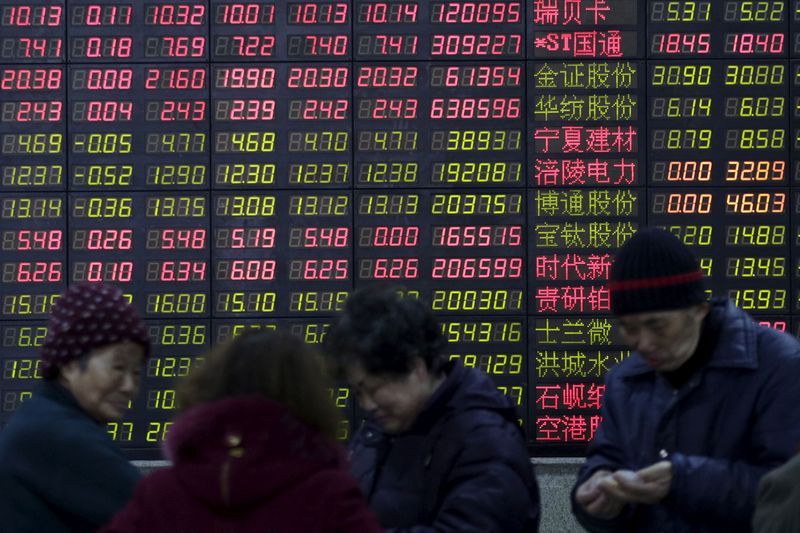SHANGHAI (Reuters) - China's move this week to streamline stock market listing rules is unlikely to result in a flood of initial public offerings, bankers say, citing the prospect of state intervention on national security and other grounds that would result in delays.
Beijing published draft rules on Wednesday to broaden its fledgling registration-based IPO system, expand the U.S.-style mechanism to all corners of China's stock market in a shift designed to speed up listings and corporate fundraising.
Under the new system, China's stock exchanges will themselves vet IPOs with a focus on information disclosure. Currently, IPOs on China's blue-chip boards need clearance from the China Securities Regulatory Commission (CSRC) under an approval-based system - one that means long delays and IPO prices capped by the regulators.
The reform was hailed by state media and analysts as a key milestone that would make China's IPO market more inclusive, transparent and efficient.
But in reality, bankers say, the IPO process will largely remain at the mercy of authorities, who view stock markets as a tool in a global power struggle and in national rejuvenation: under the new rules, the CRSC's stated role will be to make sure listings are in line with Beijing's broad industrial policy.
"Under China's mechanism, the government dictates the direction of IPOs. Applicants are screened based on national policies," said Terence Lin, partner of TRSD Capital, a boutique investment bank that helps Chinese companies list in the United States.
More than 30 IPO hopefuls have halted the CSRC registration process, according to public filings, while hundreds have aborted listing plans during the gruelling vetting process by the exchanges in the pilot registration-based scheme.
A banker at a major Chinese brokerage, who declined to be named as he was not authorised to speak to the media, said China's IPO system, though registration-based in form, still requires government approval in essence.
"If a company is neither big enough, nor innovative enough, listing domestically is quite impossible (to get approval)," he said. "Paternalism and politics continue to play a big role" in the new IPO system, he said.
STAR SYSTEM
The registration-based IPO system was first adopted by Shanghai's STAR Market when the tech-focused board was launched in 2019. Endorsed by President Xi Jinping, STAR was designed to fund tech independence amid escalating tension with the United States.
The new IPO system was later rolled out to the start-up board ChiNext, and the Beijing Stock Exchange. On Wednesday, the CSRC said the reform will be expanded to the main boards in Shanghai and Shenzhen - home to multi-billion dollar blue-chip China stocks like Kweichow Moutai and Bank of China.
On Thursday, the CSRC made its role explicit. It said that it would strengthen the Chinese Communist Party's leadership in capital markets, vowing to combine market forces with government roles as it mobilises the IPO reform.
"This means the CSRC still has the final power in deciding whether the listing hopeful is in the appropriate sector," said Yi Jiansheng, capital markets lawyer at Jia Yuan Law Offices, writing in a research note on Thursday.
The most glaring example of state intervention even in the registration-based system is the scuppering of Ant Group's planned $37 billion IPO dual-listing in Shanghai and Hong Kong just days before of its scheduled listing in late 2020, bankers say.

"We thought the registration-based IPO mechanism would allow more types of companies to list, and give the market more power," said another banker at a Chinese brokerage, declining to be named as he was not authorised to speak to the media.
"But as IPO sponsors, we feel on the ground that companies face tighter and tighter regulatory scrutiny, which defies the original purpose of the reform."